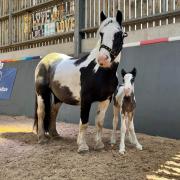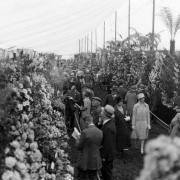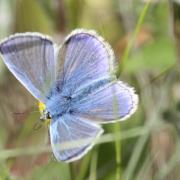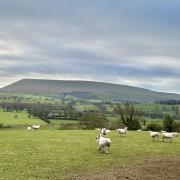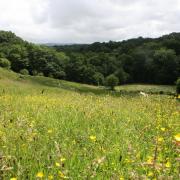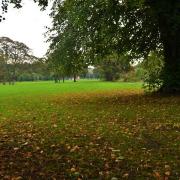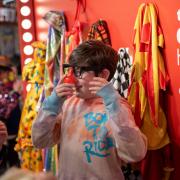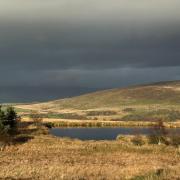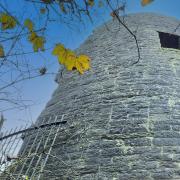Rubbish washed up on a beach set Lytham St Annes artist Sukie Woodhouse in a new and thought-provoking direction. Barbara Waite reports

Grocery shopping for her family led artist Sukie Woodhouse to an epiphany moment and a new direction for her paintings.
Unpacking the bags and seeing the amount of plastic packaging led to her developing a series of works using non-recyclable waste to highlight the issue. It followed hot on the heels of a holiday to Wales when she had found broken fishing nets, lines and hooks – known as ‘ghost gear’ – thrown up on the beaches.
‘Around this time, I was taking photos of the winter seas off Lytham St Annes where I live and attempting to capture some of the drama in painting,’ said Sukie.
‘I found myself artistically frustrated with how flat and small the canvas and acrylic paint were in capturing the beauty and brutality of the sea. The plastic came to my rescue.’

Sukie trained as an art historian and her first artworks were 3D ceramic sculptures.
After graduating she started her own business as a scenic artist, painting murals for clients such as North West Water and Sea Life Centres, London Dungeons and the London Aquarium. She has been a scenic artist and designer for 20 years working in the leisure industry on bowling alleys, laser arenas and family entertainment centres across Europe.
‘Researching ways of recycling plastic water bottles for the primary school I work at, I came across a technique of melting plastic bags with an iron,’ she said.
‘This was when I realised I could melt the bags directly onto the canvas. All the ideas suddenly coalesced into one solution to my wave problem.
‘I have learnt to melt pretty much every kind of plastic packing and every bag and wrapper has its own properties. Some are good for the foam of the waves, others great for light refracting water patterns and others for encapsulating the words and poems I include. Each piece comes with a hand-written list of all the plastic used in it.’
There will be between 20 and 30 paintings on show at the Cartford Inn, Little Eccleston, on Saturday and Sunday April, 6 and 7 with some remaining there for about two months. Prices range from £1,500 for the most complex to £200 for the smaller pieces. A percentage of sales will be donated to ‘ghost gear’ reclamation projects.
Married with two teenage children, she is preoccupied with the plastic legacy she is leaving. By melting plastic into the pieces, her work is a thought-provoking way of highlighting the pollution of the oceans.




